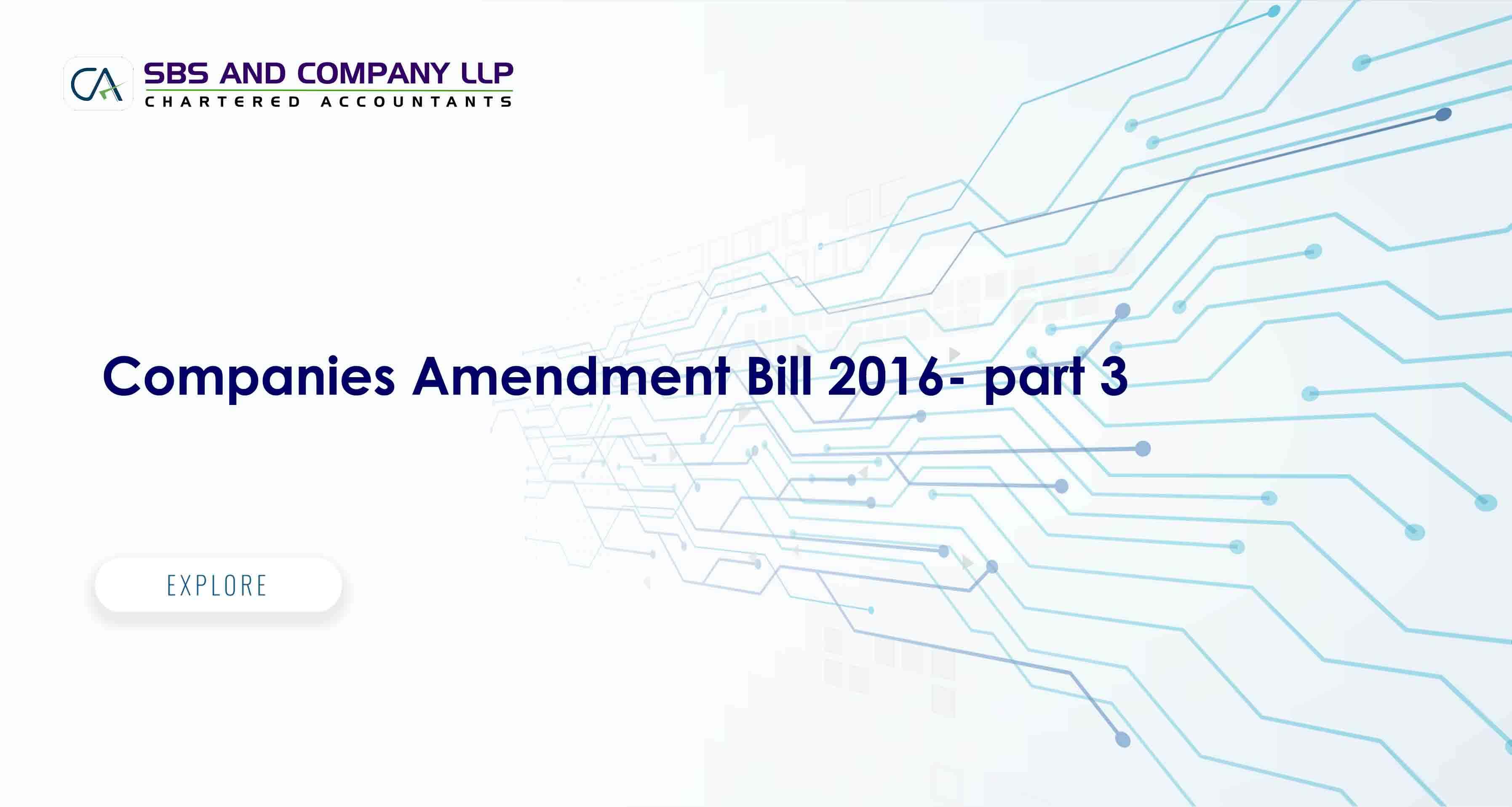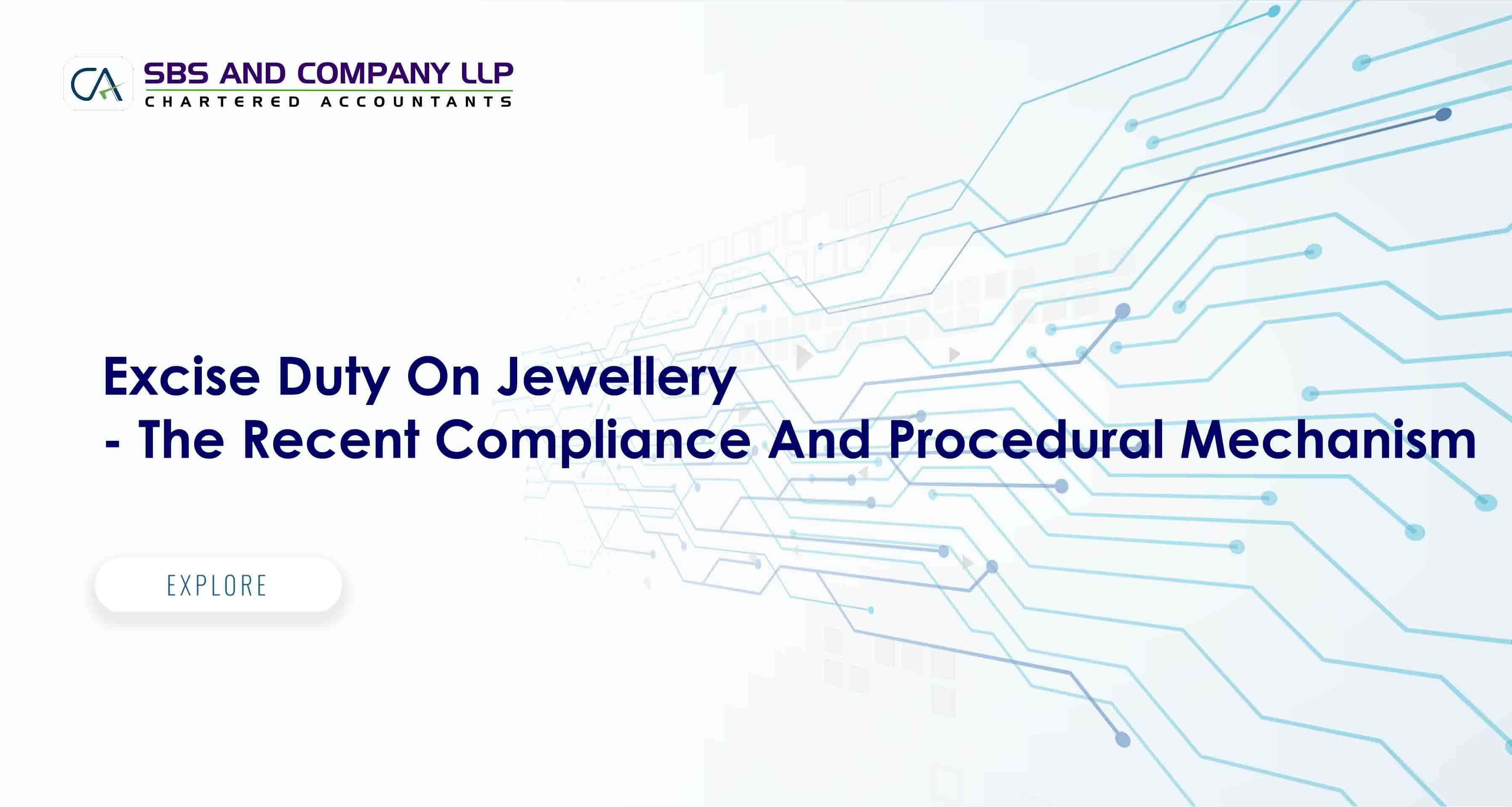SERVICE TAX
Notifications:
- Exempts the service tax on taxable services by way of transportation of goods by vessel: Notification no. 36/2016- ST
The service of transportation of goods by vessel from outside India up to the Custom station of India is made taxable w.e.f 01.06.2016. However, such services are exempted in case the invoice is raised on or before 31.05.2016 provided the import manifest or import report has been issued on or before 31.05.2016 and the service provider or recipient shows the Customs certified copy of said document.
http://www.cbec.gov.in/resources//htdocs-servicetax/st-notifications/st-notifications-2016/st36-2016.pdf
- b) Exemption of service from levy of Krishi Kalyan cess: Notification no. 35/2016-ST
The Krishi kalyan cess is levied on all taxable service w.e.f 01.06.2016 along with service tax and Swachh Bharat cess. However, if the service is completed and the invoice is also raised by 31.05.2016, then such service will be exempted from payment of krishi kalyan cess even if payment is received at any time on or after 01.06.2016.
http://www.cbec.gov.in/resources//htdocs-servicetax/st-notifications/st-notifications-2016/st35-2016.pdf
- Service Tax Rules, 1994 rules are amended to specify that business entity is liable to pay tax when service is received from Senior advocate: Notification 32, 33 & 34/2016-ST
Legal services of a senior advocate are exempt when provided to any person other than a business entity and to a business entity with a turnover up to ten lakhs in preceding financial year.
Senior advocate services are brought under reverse charge mechanism. In case of representational services of senior advocates, the client (litigant/petitioner/applicant) is required to pay service tax irrespective of the fact whether services of senior advocate are received directly by client or indirectly through other individual or firm of advocates. In case of other services, the direct service receiver whether it is client or an individual are required to pay service tax.
http://www.cbec.gov.in/resources//htdocs-servicetax/st-notifications/st-notifications-2016/st34-2016.pdf
34 | P a g e
SBS Wiki www.sbsandco.com/wiki
Circulars:
- Speedy disbursal of pending refund claims of exporters of services – Rule 5 of CENVAT Credit Rules,2004:
Circular 195/05/2016-ST
Circular 187/6/2015-ST dated 10.11.2015 has prescribed a scheme for speedy disposal of export refund claims filed under Rule 5 of CCR, 2004. The said scheme is applicable forrefund claims filed on or before 31.03.2015 and have not been settled before 10.11.2015. Accordingly, the applicant is eligible for provisional payment of 80% of the claim amount. The said circular requires certificate from statutory auditor, chartered accountant as per the format given in Annexure I.
With the current circular, it is now clarified that in case of companies, the said certificate should be signed by the statutory auditor of the Company as appointed under Companies Act and in case of other entities; the certificate can be signed by any Chartered Accountant. In certain cases, refund claims are rejected for the reason that the certificate issued contains certain qualifications/disclaimers. It is now clarified that the claims should not be rejected for the said qualifications/disclaimers.
http://www.cbec.gov.in/resources//htdocs-servicetax/st-circulars/st-circulars-2015/st-circ-187-2015.pdf
- CBEC directs officers to strictly comply with legal provisions and administrative instructions while exercising their power to provisionally attach properties towards recovery of service tax dues: Circular 196/06/2016-ST
This Circular is issued pursuant to the decision of Kunj Power Projects vs UOI - 2015-TIOL-2728-HC-ALL-STwherein the Allahabad High Court stated that the power relating to provisional attachment of property under Rule 3 of The Service Tax (Provisional Attachment of Property) Rules, 2008 should be exercised by officers with utmost care and caution and by providing a reasonable opportunity to the assesse.
In this regard, CBEC vide this Circular clarified that there are adequate safeguards in the law and same have been highlighted in the Circular dated 1-7-2008. The present situation has resulted only on account of non-compliance with respect to both. Chief Commissioners are requested to issue standing orders with respect to the observations of the Hon'ble Allahabad High Court and to also emphasize that non-compliance with legal provisions or administrative instructions will leave officers with no defence in legal proceedings arising out of such non-compliance.
http://www.cbec.gov.in/resources//htdocs-servicetax/st-circulars/st-circulars-2016/st-circ-196-2016.pdf
CENTRAL EXCISE
The changes pertaining to the jewellery industry are covered under a separate article in this month’s edition in SBS Wiki. We request the interested readers to kindly make a note of the same.
35 | P a g e
SBS Wiki www.sbsandco.com/wiki
Notifications:
- Exemption to handicrafts of Goldsmiths and Silversmiths wares is withdrawn: Notification No. 29/2016-CE, dated 26.07.2016
Notification 17/2011-CE dated 01.03.2011 provides exemption from central excise duty on manufacture of all kinds of handicrafts. This exemption notification is now amended with the present notification to withdraw exemption for handicrafts of Goldsmiths and Silversmiths wares.
http://www.cbec.gov.in/resources//htdocs-cbec/excise/cx-act/notifications/notfns-2016/cx-tarr2016/ce29-2016.pdf
- Requirement of dual registration viz as importer and dealer is done away: Notification 30/2016- CE(NT) dated 28.06.2016
A separate registration and filing of separate returns under Central Excise was made mandatory for importers engaged in the business of importing goods from outside India and selling in India. If the same person is also involved in selling goods manufactured in India, he is also required to have separate registration as dealer under Central Excise and file separate return. In order to file separate returns, separate set of records are required to be maintained for both the activities. Now the requirement of dual registration has been done away.
Now sub-rule (2) of Rule 9 of Central Excise Rules, 2002 is amended to give effect that if an assessee is registered as an importer, he is not required to register as dealer. Similarly if an assessee is registered as a dealer, then he is not required to register as importer. This would mean that as assesse engaged in trading of both imported and indigenously manufactured goods is now permitted to maintain single set of records and file single return. http://www.cbec.gov.in/resources//htdocs-cbec/excise/cx-act/notifications/notfns-2016/cx-nt2016/cent30-2016.pdf
- Bunker fuels are permitted to store in warehouse without payment of duty: Notification 31/2016-CE(NT) dated 04.07.2016
In terms of sub-rule (1) of Rule 20 of Central Excise Rules, 2002, Central Government is given power to notify excisable goods which can be removed from Factory of production to a warehouse or from one warehouse to another warehouse without payment of duty. Through this notification, this facility of storing excisable goods without payment of duty in a warehouse is extended to bunker fuels for use in ships or vessels namely IFO 180 CST and IFO 380 CST. http://www.cbec.gov.in/resources//htdocs-cbec/excise/cx-act/notifications/notfns-2016/cx-nt2016/cent31-2016.pdf
- Branded Garment manufacturers are exempt from physical verification of premises for granting registration under Central Excise: Notification No. 32/2016-CE(NT) dated 11.07.2016
This notification is issued to amend Notification 35/2001-CE(NT) dated 11.07.2016. Accordingly, branded garment manufacturers falling under Chapters 61, 62 or 63 (except laminated jute bags falling under headings or tariff item 6305, 6309 00 00 or 6310) of the First Schedule to the Central Excise Tariff Act, 1985 (5 of 1986) bearing a brand name or sold under a brand name and having a retail sale price (RSP) of one thousand rupees and above, are exempt from the requirement of physical verification of their premises for granting registration under Central Excise. http://www.cbec.gov.in/resources//htdocs-cbec/excise/cx-act/notifications/notfns-2016/cx-nt2016/cent32-2016.pdf
Circulars:
- Manual signatures on digitally signed invoices: Circular 1038/26/2016 - CE
It is clarified in this circular that the manufacturer or service provider who opts to issue invoices authenticated by digital signature may print a copy of the invoice and manually sign it and forward to customers who are unable to get digitally signed invoices. Such invoices should be authenticated by digital as well as manual signatures and is a valid document for taking CENVAT credit. http://www.cbec.gov.in/resources//htdocs-cbec/excise/cx-circulars/cx-circulars-2016/circ1038-2016cx.pdf
- Recovery of confirmed demands during pendency of stay application: Circular 1035/2016-CE
This Circular issued to rescind the earlier Circular No. 967/1/2013-CX dated 01.01.2013 relating recovery of confirmed dues during pendency of stay applications. It is now clarified that in case of stay applications pending before Commissioner (Appeals) and CESTAT for the appeals filed for the period prior to 06.08.2014, no recovery of amount shall be made during their pendency.
With respect to recovery proceeding in relation to an order of Hon'ble High Court or Tribunal confirming demand of duty, the Circular has directed that the proceedings may be initiated only after a period of sixty days from the date of order of the Hon'ble Tribunal or Hon'ble High Court, as the case may be, where no stay has been granted by Hon'ble High Court or Hon'ble Supreme Court against the order of Hon'ble Tribunal or Hon'ble High Court, respectively. http://www.cbec.gov.in/resources//htdocs-cbec/excise/cx-circulars/cx-circulars-2016/circ1035-2016cx.pdf
- Clarification of the scope of word ‘site’ in relation to exemption on manufacture of goods at construction site: Circular 1036/23/2016-CX dated 06.07.2016
Notification 12/2012-CE dated 17.03.2012 provides exemption vide entry 186 for goods manufactured at the site of construction for use in construction work at such site. It is clarified by way of explanation in the said notification that the expression "site" means any premises made available for the manufacture of goods by way of a specific mention in the contract or agreement for such construction work, provided that the goods manufactured at such premises are solely used in
37 | P a g e
SBS Wiki www.sbsandco.com/wiki
the said construction work only. The present Circular stated that in case of some field formations, the distance at which goods manufactured and used in the project, has been considered as criteria for examining the eligibility of goods for exemption. The Circular clarified that this is an extraneous criteria not flowing from the language used in the notification, particularly when the expression "site" stands explained in the notification as stated above.
http://www.cbec.gov.in/resources//htdocs-cbec/excise/cx-circulars/cx-circulars-2016/circ1036-2016cx.pdf
LEGAL UPDATE
SERVICE TAX
- Service Tax audit by departmental officers is ultra vires the Finance Act 1994 due to absence of enabling power in the Act— Mega Cabs Private Limited vs. UOI, [2016] 70 taxmann.com 51 (Delhi)
Facts:
Assessee, being served upon letter intimating the audit to be conducted of assessee by department officials, challenged that the department officials have no power to ‘audit’ and the subsequent amendments to Section 94 of Finance Act 1994 and Rule 5A of Service Tax rules 1994 so as to enable department officials to proceed with audit as ultra vires the Finance Act 1994.
Held:
The Honourable High Court held that there is no power with service tax authorities to conduct audit. The word 'verify' in section 94(2)(k) empowers verification of records and does not empower 'audit' of records, as audit is an specialized function and cannot be entrusted to any and every officer of department. Moreover, 'records' would mean 'records' required to be kept under rule 5(2);Therefore, rule 5A (2) requiring even furnishing of 'audit reports' exceeds mandate of 'records' Rule 5A (2) requiring submission of records to C&AG is irrational. Therefore, consequent direction of audit of accounts of assessee was also quashed.
- Prima facie Service Tax Department officials are not authorised to gain access to any premises of an assessee under Rule 5A(1) and the same is ultra vires Section 82— Magma HDI General Insurance Company Ltd vs. UOI, [2016] 71 taxmann.com 264(Calcutta)
Facts:
Rule 5A(1) of the Service Tax Rules, 1994 provides that an officer authorised by the Principal Commissioner or Commissioner in this behalf shall have access to any premises registered under these rules for the purpose of carrying out any scrutiny, verification and checks as may be necessary to safeguard the interest of revenue. Vires of this Rule 5A(1) is challenged before the Kolkata High Court on the ground that the same is contrary to Section 82 of the Finance Act, 1994.
38 | P a g e
SBS Wiki www.sbsandco.com/wiki
Held:
The Kolkata High Court prima facie upheld the view of the Delhi High Court in the case of Mega Cabs Private Limited vs. UOI, [2016] 70 taxmann.com 51 (Delhi) that Rule 5A(2) relating to conduct of audit by Department officials and submission of records is ultra vires section 72A of the Finance Act, 1994. Taking this into consideration, the Kolkata High Court held that if the authorities cannot make any demand of records as envisaged under Rule 5A(2), gaining of access to any premises under sub-rule (1) may not serve any purpose. However, the court enshrined that the Department officials are free to take recourse to Section 82 (power to search any premises) in order to physically verify any premises.
- No levy of service tax on composite contract of construction of residential complex along with transfer of undivided share in the land due to absence of machinery provision to determine the service component— Suresh Kumar Bansal v. Union of India, [2016] 70 taxmann.com 55 (Delhi)
Facts:
The petitioner entered into an agreement with a builder to buy flats in a housing project. The builder charged service tax for constructing such complex and preferential location charges. The petitioner contended that the contract entered is a composite contract including transfer of undivided share of land and there is no specific provision to ascertain the service component from the said agreement. Accordingly, levy is challenged on the ground that it lacks machinery provision to ascertain the value of service component.
Held:
The Court held that the service tax is levied on value of service but such value cannot include the value of land and goods. In this case the consideration charged includes value of service, cost of goods and the sale of immovable property namely land.
Rule 2A of the Service Tax (Determination of Value) Rules, 2006 does not provide the method to determine the value of service in case of composite contract which involves sale of land as well. In the present case, there is no mechanism to ascertain the service portion under service tax.
Held that though, Parliament has the power to levy service tax but neither the Act nor the rule provides the mechanism to segregate the service element from the consideration and hence it is outside the levy of service tax.
- In view of SEZ Act, 2005; SEZ unit and DTA of same company are distinct entities/separate persons for charge of service tax. However, if no consideration is charged separately, then no service tax can be charged— CCE vs. Larson and Toubro Ltd, [2016] 71 taxmann.com 241 (Gujarat)
Facts:
SEZ unit of the company provided various services to DTA units of the same company. Department treated the SEZ unit and the DTA units as separate persons and demanded service tax. The assessee argued that units of same company constituted a single person and hence no service is involved to attract service tax. Department argued that as per rule 19(7) of SEZ Rules, 2006, enterprise operating both as DTA and SEZ unit shall have two distinct identities, with separate books of accounts. Hence, they are separate persons and service tax is leviable.
Held:
Rule 19(7) of SEZ Rules, 2006 recognises that a same legal entity may have two units one in SEZ and another in DTA. It also mandates maintenance of separate books of accounts. It is because of the special concessions in taxation, including duty drawbacks and other exemptions that the SEZ unit has to maintain scrupulously accounts of all imports and procurements from Domestic Tariff Area. It also has to pay customs duty on goods cleared to Domestic Tariff areas as if such goods were imported into India.
In view of statutory scheme noticed in Finance Act, 1994 and SEZ Act, 2005, it was heldthat the contention of the assesse company that unit in SEZ and other units of same legal entity are not two distinct legal persons on the basis of principle of mutuality cannot be accepted. Accordingly held that SEZ unit and other units of same legal entity are treated as separate persons for charge of service tax. However, it was held that service tax cannot be collected in the said case, as no consideration was charged by SEZ unit for services to DTA units.
CENTRAL EXCISE
- For the purpose of reversal of CENVAT Credit relating to trading activity for the period prior to 01.04.2011, the CESTAT earlier observations that full sales value of trading business shall be considered for reversal instead of formula which was introduced from 01.04.2011 to encourage trading industry were set aside by High Court. Case remanded to decide the matter afresh— Mercedes Benz India (P) Ltd vs.CCE, [2016] Taxmann.com 332(Bombay)
Facts:
The appellant is engaged in the business of manufacture of motor vehicles and parts thereof through their dealer network. Appellant is also engaged in the business of importing completely built-up units from their parent company and selling them through their same dealer network. Appellant availed CENVAT Credit of common input services relating to manufacturing activity and import activity for the period from September 2004 to March 2011. Formula method has been prescribed w.e.f. 01.04.2011 which provides that trading turnover being higher of gross margin or ten per cent of the cost of goods sold. According to Department, the formula method cannot be applied for the period prior to 01.04.2011. Accordingly the amount should be reversed on simple pro-rata formula of trading turnover divided by total turnover. The view of Department is upheld by CESTAT and is appealed to High Court in the present case.
40 | P a g e
SBS Wiki www.sbsandco.com/wiki
Held:
Held that the Appeal should not be entertained for the reason that CESTAT order does not discuss some of the questions raised and with respect to other questions, factual findings are required. Coming to the issue of applicability of formula relating to reversal of CENVAT Credit for the period prior to 01.04.2011, it was held that the CESTAT must firstly refer to the substantive Rule operative prior to 01.04.2011 and then arrive at a conclusion in relation to the Explanation introduced with sub-clauses from01.04.2011. The CESTAT failed in justifying that the Parliament intended to encourage trading of goods rather than manufacturing of the same. The decision of CESTAT set aside and remanded for fresh hearing.
- Supply of bought out ‘O’ ring and ‘U’ cap seals along with manufactured pneumatic cylinders and valves would not amount to manufacture and hence not excisable— M/s Electropneumatics & Hydraulics India Pvt Ltd vs. CCE, 2016-TIOL-1882-CESTAT-Mum
Facts:
The Appellant is engaged in manufacturing of pneumatic cylinders and valves. Seal kits are also supplied along with the manufactured goods. Seal kits were a combination of ‘O’ ring and ‘U’ cap seals etc which are bought out by the Appellant and supplied along with the manufactured goods as spares. No excise duty is paid on these items for reason that no manufacturing activity is involved. Revenue rejected their plea on the reasoning that the activity of packeting such bought items in fixed number in plastic bags as seal kits is to make them marketable and thus amounts to manufacture. The said view is also upheld by first appellate authority also.
Held:
The CESTAT held that ‘O’ ring and ‘U’ cap seals are already marketable when supplied by their manufacturer to the Appellant. Subsequent packeting of pre-determined quantity of the said spares in a plastic bag has not made the products marketable. In the absence of any note in Chapter that packeting of pre-determined quantity would amount to manufacture, this activity cannot be considered as manufacturing activity. Accordingly, the demand is set aside.








